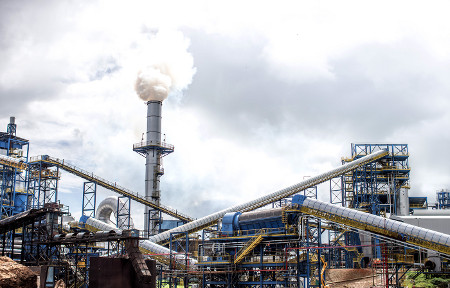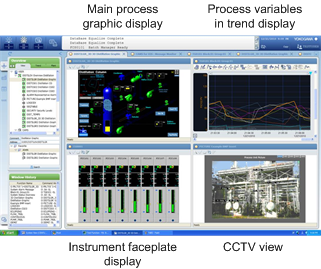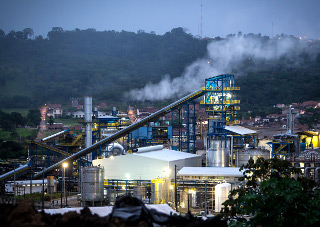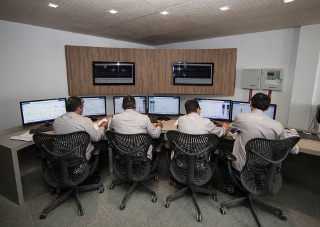Second-generation Ethanol Plant Now Producing Cheap, and Clean-burning Biofuel
Executive Summary
 GranBio Investimentos SA is a Brazilian industrial biotech company that was born out of the vision of bringing about a green revolution through the construction of second-generation ethanol plants that will produce cheap, clean-burning biofuel from readily available biomass. Following its establishment in June 2011 by Gran Investimentos S.A., a holding company in which the Gradin family are the primary investors, the company built Bioflex 1, the first commercial second-generation ethanol plant in the Southern Hemisphere. Bioflex 1 started operation in early 2014 and is able to produce 82 million liters of biofuel per annum, making it one of the largest such facilities in the world.
GranBio Investimentos SA is a Brazilian industrial biotech company that was born out of the vision of bringing about a green revolution through the construction of second-generation ethanol plants that will produce cheap, clean-burning biofuel from readily available biomass. Following its establishment in June 2011 by Gran Investimentos S.A., a holding company in which the Gradin family are the primary investors, the company built Bioflex 1, the first commercial second-generation ethanol plant in the Southern Hemisphere. Bioflex 1 started operation in early 2014 and is able to produce 82 million liters of biofuel per annum, making it one of the largest such facilities in the world.

As the main automation contractor (MAC) for the Bioflex 1 project, Yokogawa South America was involved from the front end engineering design (FEED) stage, performing the basic design for a control system and field instrumentation solution that will reduce costs and improve production efficiency throughout the lifecycle of the plant. Yokogawa installed the CENTUM VP integrated production control system; the csTUNER control loop tuning software; the CENTUM VP Batch package to control the plant's pretreatment, enzymatic hydrolysis, fermentation, and distillation/separation units; field instruments including FOUNDATION™ fieldbus-enabled ADMAG AXF magnetic flowmeters, DPharp EJA series pressure/differential pressure transmitters, and control valves; and the Plant Resource Manager (PRM) asset management package. Yokogawa South America was responsible for product delivery, engineering, and operator training.

Overview of second-generation ethanol process
The Challenges and the Solutions
Improving productivity
Second-generation ethanol and other chemical products are produced from non-food agricultural materials and industry waste. The cost of producing biofuel with this method compares favorably to fossil fuels such as oil and natural gas, and it produces fewer greenhouse gases. The GranBio plant produces ethanol from energy cane, bagasse, and straw, all of which are readily available in Alagoas State.
The raw materials used in this production process must first be pretreated to make the cellulose in the plant cell walls easier to break down with enzymes (hydrolysis) and solubilize hemicellulose sugars. The cellulose in the plant cell walls is in a matrix with other polymers, primarily hemicellulose and lignin, and the pretreatment of biomass with heat removes these polymers from the cellulose core. During the cooking process, great care must be taken to keep the biomass at a steady temperature. The pretreated cellulose fragments are then broken down using enzyme preparations to obtain double glucose molecules, which are then split into single glucose residues. In a fermentation reactor, these residues are converted to ethanol using microbes.

"All in one" high density HMI display
Based on whichever raw materials are being processed, the pretreatment and fermentation settings have to be automatically selected and executed. All important parameters for these processes are preconfigured in the CENTUM VP Batch package. When an operator selects a recipe from the package menu, all of the preconfigured settings are automatically selected and downloaded to the individual controllers so that each sequence can be automatically started. At a human machine interface (HMI) terminal, an operator can monitor the status of the reactions in ergonomically designed process graphic display, trend display, alarm summary display, and control display windows. When each batch operation is completed, the operation data are compiled for an automatically generated batch report (provided as a standard function). In these ways, the CENTUM VP Batch package improves productivity at GranBio.
Reduction of operator workload and safe operation

FieldMate parameter setting




PRM device status and diagnostic data
Many different field devices, including magnetic flowmeters, DPharp EJA series pressure/differential pressure transmitters, and control valves, are installed at this plant, and it has nearly 2,000 I/Os. Some of the devices are exposed to high temperature processes and other harsh conditions and/or are mounted in high, narrow, and other difficult to access locations.
With the PRM asset management package, the health of these devices can be monitored from the central control room (CCR), eliminating the need for difficult and time consuming physical inspections. The PRM device navigation window displays the status of plant-wide assets with a Windows Explorer-like interface, enabling maintenance engineers to quickly identify devices that require online diagnosis. This is an especially valuable time-saving tool during plant start-up, when engineers and operators must check many loops and control valves. The centralization of the management of these plant assets ensures that maintenance information gets immediately to the right persons, depending on the type and criticality of the diagnostic data analysis. This changes the maintenance engineer workflow and enables a more proactive maintenance approach.
Other valuable tools provided by Yokogawa include FieldMate, which can be used from the CCR to set field device parameters, and csTUNER, which simplifies the task of tuning PID loops. With its ability to optimize tuning parameters and generate a tuning report, csTUNER is particularly useful during the plant start-up and commissioning phases, reducing the workload of both engineers and operators.
The use of these tools helps to ensure that GranBio's operators and engineers are able to comfortably operate and keep this plant safe 24/7.
Customer Satisfaction
Manoel Carnauba, a GranBio vice president, comments as follows:
"Brazil is a dominant player in the bioethanol market. The biofuel market is steadily growing, and second-generation biofuel is attracting attention as an environmentally friendly energy source. We appreciate Yokogawa's modern and highly reliable control system and field instruments, and value their engineering capabilities, and believe we made the right decision to rely on them as the MAC for the construction of this large-scale commercial second-generation ethanol plant. As we were able to complete the basic specifications at an early stage and maintain consistency with all the specifications, this reduced the total cost of the control system and the instrumentation. We completed our project on schedule and on budget."

Plant view

Shift operators in central control room
Industries
-
Biocarburant
Pour lutter contre le réchauffement climatique, la production et la consommation de biocarburants augmentent dans le monde entier. En tant que fournisseur leader de solutions de mesure et de contrôle pour les industries chimiques, pétrolières et autres, Yokogawa a développé des technologies qui peuvent être utilisées pour assurer une production fiable et efficace de bioéthanol et d'autres types de carburants renouvelables.
-
Chimie
Les usines chimiques s'appuient sur des processus de production continus et discontinus, chacun posant des exigences différentes en matière de système de contrôle. Un processus continu nécessite un système de contrôle robuste et stable qui ne tombera pas en panne et n'entraînera pas l'arrêt d'une ligne de production, alors que dans le cas d'un processus discontinu, l'accent est mis sur un système de contrôle qui permet une grande flexibilité dans les ajustements des formules, des procédures, etc. Les deux types de systèmes doivent être gérés en fonction de l'historique de la qualité du produit et être en mesure d'exécuter des opérations non routinières. Avec son large portefeuille de produits, ses ingénieurs systèmes expérimentés et son réseau mondial de vente et de service, Yokogawa a une solution pour chaque processus d'usine.
Les produits et solutions liés
-
EJA110E
Transmetteur traditionnel de pression différentielle basée sur la série EJA-E.
-
EJA115
Differential Pressure Transmitter attached to an IFO assembly based on the EJA-A Series.
-
EJA115E
EJA115E Transmetteur Faible débit
-
EJA118E
Transmetteur de pression différentielle avec séparateurs à membrane déportés
-
EJA120A
Traditional-mount Differential Pressure Transmitter designed for Draft Range applications based on the EJA-A Series.
-
EJA120E Transmetteur de pression différentielle, basse échelle
Transmetteur de pression différentielle à montage traditionnel basé sur la série EJA-E, conçu pour faibles valeurs.
-
EJA130A
Traditional-mount High-static Differential Pressure Transmitter based on the EJA-A Series.
-
EJA130E
Transmetteur traditionnel de pression différentielle, pour forte pression basée sur la série EJA-E.
-
EJA210A / EJA220A
Transmetteur de pression différentielle à bride conçu pour les applications de niveau liquide basées sur la série EJX-A.
-
Gestionnaire des appareils de terrain mobiles (FieldMate)
FieldMate 3.0 est un outil de configuration basé sur PC qui effectue de nombreuses tâches, y compris la configuration initiale, la maintenance quotidienne, le dépannage et la sauvegarde de la configuration pour le remplacement de l'appareil.
-
Plant Resource Manager (PRM)
Have the facility managed properly for high-reliable and stable plant operation? PRM contributes to improving the quality of maintenance plans and optimizing maintenance costs throughout the plant life cycle.
-
Distributed Control System (DCS)
Our distributed control system (DCS) enables automation and control of industrial processes and enhanced business performance. Over 30,000 systems entrust Yokogawa DCS to deliver their production goals.
